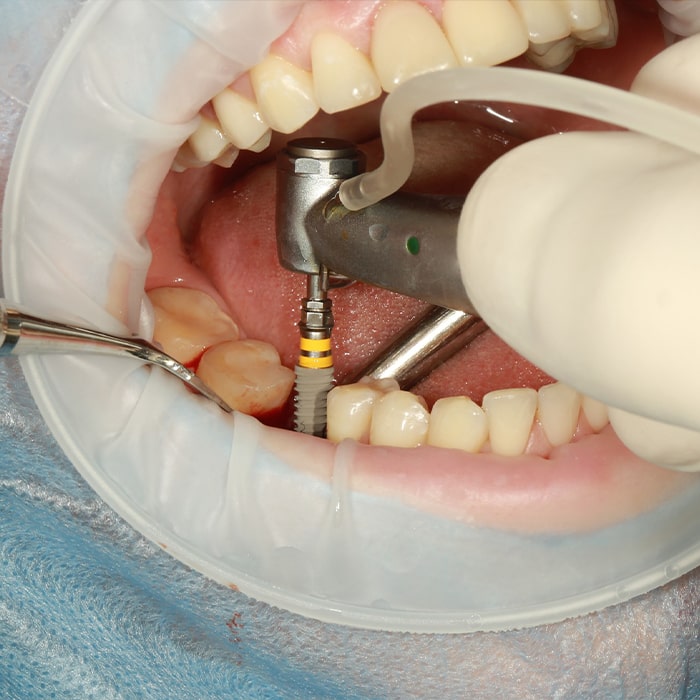Preparing for Wisdom Teeth Removal Aspendale: Vital Guidance for Individuals
Preparing for Wisdom Teeth Removal Aspendale: Vital Guidance for Individuals
Blog Article
Exploring Different Sedation Options for a Comfy Knowledge Teeth Extraction Experience
The use of sedation throughout such procedures has actually come to be significantly usual to reduce anxiety and pain. With a range of sedation choices available, from neighborhood anesthetic to general anesthesia, each method offers varying levels of leisure and pain control.
Regional Anesthetic
Local anesthetic is a commonly used method for numbing specific locations of the mouth throughout wisdom teeth removal treatments. By carrying out a regional anesthetic, such as lidocaine, a dental practitioner can make certain that the individual remains comfy and pain-free throughout the extraction procedure. Neighborhood anesthetic works by momentarily obstructing the nerves in the mouth, preventing them from sending out discomfort signals to the brain. This allows the dentist to execute the extraction without causing any kind of pain to the individual.
Among the key advantages of local anesthetic is its targeted numbing impact, which indicates that only the certain area being dealt with is influenced. This local approach minimizes the danger of systemic side effects and permits a quicker healing post-procedure. In addition, regional anesthetic is considered to be a routine and secure practice in dental care, with minimal risks included when provided by an experienced professional.
Nitrous Oxide
Nitrous oxide, frequently understood as chuckling gas, is a type of sedation often utilized in dentistry to help patients loosen up throughout dental procedures. This sedation choice allows the individual to remain receptive and mindful throughout the treatment while feeling at ease and comfy.
As soon as the mask is gotten rid of, the effects of the gas use off swiftly, allowing clients to resume their normal activities without sticking around sedative results. Nitrous oxide is suitable for patients of all ages, making it a versatile sedation option for knowledge teeth extractions and various other dental procedures.
Oral Sedation
Oral sedation, a pharmacological approach employed in dentistry, involves the management of sedative medicines by mouth to cause a kicked back state during dental treatments. This kind of sedation is commonly used for individuals undergoing knowledge teeth extraction to minimize stress and anxiety and pain. The drugs prescribed for oral sedation come from a course of medicines called benzodiazepines, which have sedative, anxiolytic, and amnesic buildings. Generally, the person takes the suggested drug prior to the procedure, allowing enough time for the sedative effects to take hold.
Unlike intravenous sedation, dental sedation does not require needles or injections, making it a much more comfy alternative for people with a concern of needles. In addition, oral sedation is thought about effective and risk-free when administered by trained oral professionals.
IV Sedation
Administered intravenously by skilled physician, IV sedation is an effective method used to cause a regulated state of deep relaxation and unconsciousness during oral procedures. Unlike oral sedation, which can be unforeseeable in its impacts, IV sedation permits for specific control over the degree of sedation, making it an optimal option for complex procedures like wisdom teeth removals.
Throughout IV sedation, a sedative drug is provided directly right into the bloodstream with a capillary, enabling it to work rapidly and effectively. This technique guarantees that the individual continues to be comfy and uninformed of the procedure while still keeping important functions such as breathing and heart price.
One of the main benefits of IV sedation is its ability to provide a much deeper level of sedation compared to various other techniques, making it particularly ideal for patients with high degrees of anxiety or those undergoing extensive dental job (wisdom teeth removal aspendale). Additionally, the effects of IV sedation generally wear away progressively after the treatment, reducing the probability of grogginess or sticking around negative effects. On the whole, IV sedation uses a secure and effective alternative for making sure a comfy and review worry-free experience go to this website throughout knowledge teeth extraction
General Anesthetic
Having actually talked about the advantages of IV sedation for wisdom teeth removal, the usage of basic anesthesia offers an alternative choice for people requiring a deeper level of unconsciousness throughout dental procedures. General anesthetic induces a regulated state of unfamiliarity, making sure the client really feels no pain or pain during the extraction procedure. This approach is especially advantageous for people with extreme dental anxiousness, complicated surgical demands, or those going through several removals all at once.
General anesthetic is administered by a qualified anesthesiologist that closely monitors the client's vital indicators throughout the procedure. It includes using intravenous medicines or breathed in gases to cause a state of unconsciousness. While under basic anesthetic, the client will certainly not be aware of the surgical treatment, experience any type of discomfort, or have any type of recollection of the treatment later.
Although general anesthesia is safe when provided by qualified experts, it brings a somewhat greater threat contrasted to various other sedation alternatives - wisdom teeth removal aspendale. Patients thinking about basic anesthetic for knowledge teeth removal ought to go over the prospective dangers and benefits with their dentist or dental doctor to make an educated choice based upon their specific requirements and medical history

Verdict
Finally, different sedation choices are readily available to ensure a comfy knowledge teeth removal experience. Regional anesthesia is typically used for numbing the specific location, while additional hints laughing gas supplies relaxation and pain alleviation. Dental sedation and IV sedation deal much deeper levels of relaxation, depending on the client's demands. General anesthesia can be used for extra complicated situations. It is very important to consult with your dentist or dental doctor to figure out the most suitable sedation choice for your procedure.
Nitrous oxide is ideal for patients of all ages, making it a versatile sedation option for wisdom teeth extractions and other oral treatments.

Report this page